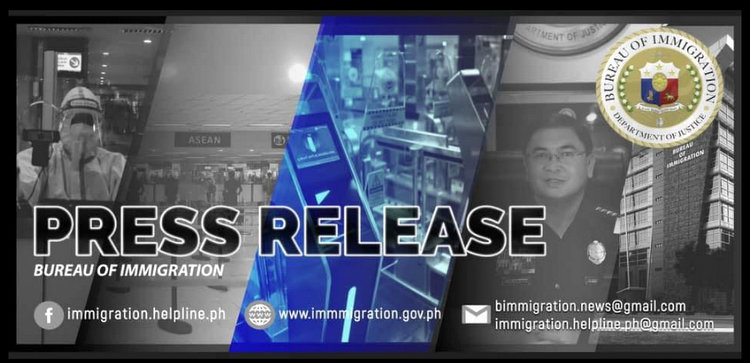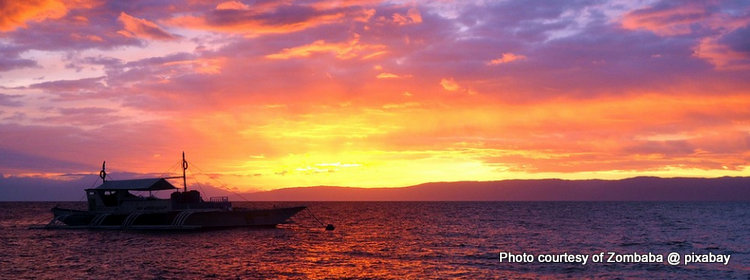Philippines to open borders to foreign tourists
A previous post covered new guidelines for tourists coming to the Philippines. However, I wanted to present the latest opening of tourist to Philippines guidelines per Immigration. A January 28, 2022 Bureau of Immigration Press Release repeats some of the same information already made public.
“OPENING OF TOURIST TO PHILIPPINES GUIDELINES PER IMMIGRATION”

The Bureau of Immigration (BI) announced that the Philippines will be opening its borders to the entry of foreign tourists starting February 10.
BI Commissioner Jaime Morente stated that Immigration is in compliance with the latest resolution from the Inter-Agency Task Force, IATF.
Thus, fully vaccinated nationals of non-visa required countries shall be allowed to enter the Philippines. Here’s a look at the complete list of countries per the Bureau of Immigration’s website.
A. Aliens from these countries may enter the Philippines without a visa, for an initial 30-days:
1. Andorra
2. Angola
3. Antigua and Barbuda
4. Argentina
5. Australia
6. Austria
7. Bahamas
8. Bahrain
9. Barbados
10. Belgium
11. Belize
12. Benin
13. Bhutan
14. Bolivia
15. Botswana
16. Brazil*
17. Brunei
18. Bulgaria
19. Burkina Faso
20. Burundi
21. Cambodia
22. Cameroon
23. Canada
24. Cape Verde
25. Central African Republic
26. Chad
27. Chile
28. Colombia
29. Comoros
30. Congo
31. Congo, Democratic Republic
32. Costa Rica
33. Cote d’Ivoire
34. Croatia
35. Cyprus
36. Czech Republic
37. Denmark
38. Djibouti
39. Dominica
40. Dominican Republic
41. Ecuador
42. El Salvador
43. Equatorial Guinea
44. Eritrea
45. Estonia
46. Ethiopia
47. Fiji
48. Finland
49. France
50. Gabon
51. Gambia
52. Germany
53. Ghana
54. Greece
55. Grenada
56. Guatemala
57. Guinea
58. Guinea-Bissau
59. Guyana
60. Haiti
61. Honduras
62. Hungary
63. Iceland
64. Indonesia
65. Ireland
66. Israel*
67. Italy
68. Jamaica
69. Japan
70. Kazakhstan
71. Kenya
72. Kiribati
73. Korea (ROK)
74. Kuwait
75. Kyrgyzstan
76. Laos
77. Latvia

78. Lesotho
79. Liberia
80. Liechtenstein
81. Lithuania
82. Luxembourg
83. Madagascar
84. Malawi
85. Malaysia
86. Maldives
87. Mali
88. Malta
89. Marshall Island
90. Mauritania
91. Mauritius
92. Mexico
93. Micronesia
94. Monaco
95. Mongolia
96. Morocco
97. Mozambique
98. Myanmar
99. Namibia
100. Nepal
101. Netherlands
102. New Zealand
103. Nicaragua
104. Niger
105. Norway
106. Oman
107. Palau
108. Panama
109. Papua New Guinea
110. Paraguay
111. Peru
112. Poland
113. Portugal
114. Qatar
115. Romania
116. Russia
117. Rwanda
118. St. Kitts and Nevis
119. Saint Lucia
120. St. Vincent and the Grenadines
121. Samoa
122. San Marino
123. Sao Tome and Principe
124. Saudi Arabia
125. Senegal
126. Seychelles
127. Singapore
128. Slovak Republic
129. Slovenia
130. Solomon Islands
131. South Africa
132. Spain
133. Suriname
134. Swaziland
135. Sweden
136. Switzerland
137. Tanzania
138. Tajikistan
139. Thailand
140. Togo
141. Trinidad and Tobago
142. Tunisia
143. Turkey
144. Turkmenistan
145. Tuvalu
146. Uganda
147. United Arab Emirates
148. United Kingdom of Great Britain and Northern Ireland
149. United States of America
150. Uruguay
151. Uzbekistan
152. Vanuatu
153. Vatican
154. Venezuela
155. Vietnam
156. Zambia
157. Zimbabwe
Arriving tourists are required to present a passport valid for at least 6 months, and the required proof of vaccination against Covid-19.
Accepted proofs of vaccination are as follows:
- World Health Organization International Certificates of Vaccination and Prophylaxis.
- VaxCertPH, or national/state digital certificate of the foreign government which has accepted VaxCertPH under a reciprocal arrangement unless otherwise permitted by the IATF-MEID.
Additionally, according to the resolution, starting February 1, arriving passengers must submit a negative RT-PCR test valid for 48 hours prior to departure from country of origin.
Those fully vaccinated are no longer required to undergo facility-based quarantine, but shall self-monitor for 7 days.
What about the unvaccinated?
Those unvaccinated and partially vaccinated shall undergo the required quarantine protocols as implemented by the Bureau of Quarantine and the local government units. It is best to check with the local government unit, LGU, you will be visiting before making any travel plans.
In addition, those whose vaccination status cannot be confirmed shall also undergo the required quarantine protocols listed above.
Minors do not need proof of vaccination.
“The opening of our borders to foreign tourists is a welcome development,” said Morente. “We see this as a giant leap towards the rebound of the tourism and international travel sector,” he added.
